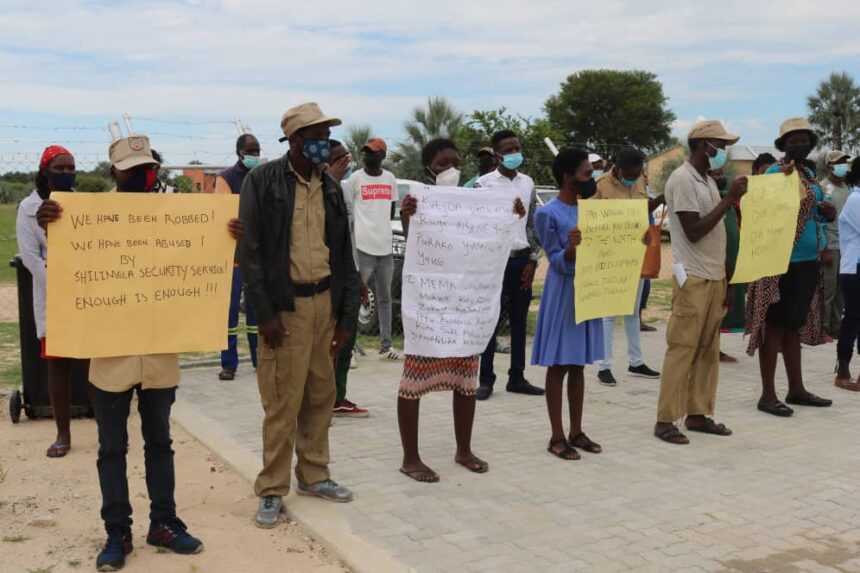The private security industry which has grown rapidly since independence continues to pay low wages while assigning poorly trained and equipped guards who work long hours and receive almost no benefits. At the moment, the Security Association of Namibia (SAN) has 78 paid-up members and 130 non-paid-up members, but there are more than 248 security companies registered by BIPA.
But security guards are fed up.
Last week, G4 Security Namibia’s employees downed tools demanding a salary hike.
SAN president Dhiginina Uutaapama yesterday cautioned members and non-members that the association has the legal mandate to bring companies to book that are not compliant with the minimum wage and the code of ethics of the security industry.
“However, the pressing competition of non-compliant companies is forcing compliant companies to lose business, and in the long run the employees and the economy are affected by these changes,” Uutaapama said.
The minimum wage for entry-level security officers is N$8.75 per hour, which has been like that since l January 2017 as per government gazette.
Security officers, who have been employed for a cumulative period of no less than 12 months shall be paid N$10 per hour as per the same government gazette. Asked how far the wage negotiations are within the security industry, Uutaapama said since SAN left the collective agreement, there was nothing put forth as individual unions are dealing directly with security companies. “We await also for the wage commission to get back to us with its findings as we also wait for the regulations that will normalise situations in the security industry, as a lot of companies are just there for survival,” he noted.
However, the labour ministry’s acting executive director Balbina Pienaar said they appointed the wages commission on national minimum wages in February 2021 to investigate the possibility of introducing a national minimum wage.
The commission conducted consultative meetings countrywide and received views from different stakeholders. A report has been submitted to the minister. She, however, said the investigations by the commission should not be viewed as a replacement of bargaining power between employers and employees’ representatives.
“The collective agreements in different sectors including security industry would remain in place as it does not only cover the minimum wages but other conditions of employment aspects too,” Pienaar maintained. On what action SAN take when employers do not want to pay minimum wages, Uutaapama said SAN report such cases to the minister of labour, and revokes membership.
Therefore, he stressed SAN is fighting for the regulation of the industry.
“If not we revoke their membership upon investigations. Unfair dismissal is dealt with by the Ministry of Labour, Industrial Relations and Employment Creation. We don’t have the authority to do so,” Uutaapama mentioned.
On the latest G4S issue, he said that issue was politically motivated and remains illegal.
According to him, one of SAN’s objectives is to promote compliance in respect of all legal requirements within the association and private security as a whole. In Namibia, security guards are allowed to work 12 hours per day, 60 hours per week, and 240 hours per month upon approval from the ministry of labour, as per the Labour Act 11 of 2007.
–anakale@nepc.com.na



